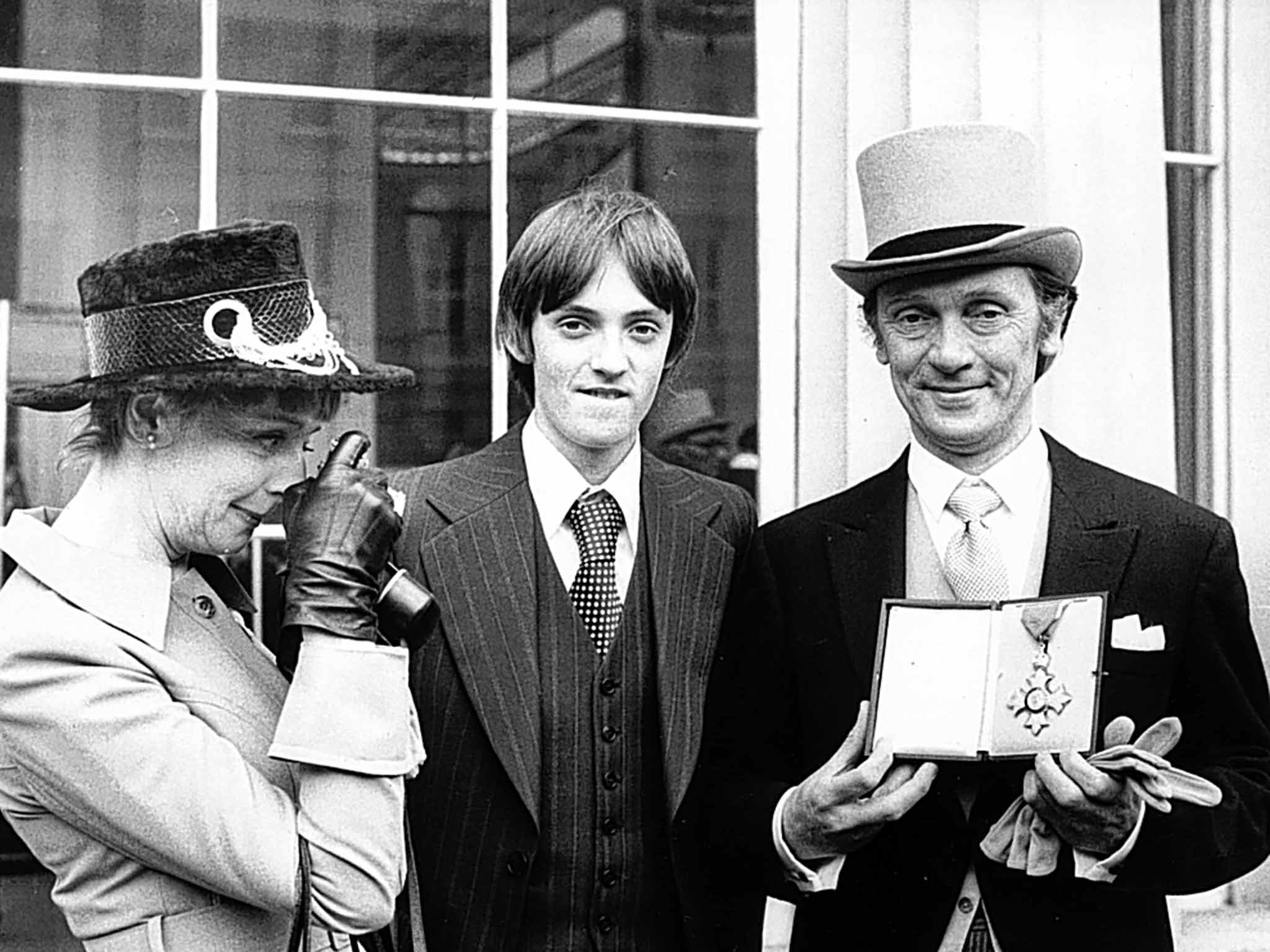Richard Pasco: RSC stalwart lauded for his verse-speaking who gave some of the finest Shakespearian performances of his generation

An actor of great humanity and warmth, and one of the finest verse-speakers of his age, Richard Pasco was an Olympian classical player whose 11-year adventure with the RSC from 1969-1980 produced some of the most significant and incisive Shakespearean performances of the era. Pasco exuded a fatherly warmth but was also equipped with searching, little-boy-lost eyes, giving him both a resolute dignity and a romantic vulnerability.
His greatest achievement came in 1973, when under John Barton's direction he and Ian Richardson alternated the roles of Richard II and Bolingbrook. For Pasco, the tragedy of Richard was "that he never actually discovered himself. He was in a state of almost perpetual bewilderment."
His journey from dandy player-king at the off to someone his usurper ultimately damns with the line "the shadow of your sorrow hath destroyed the shadow of your face" was one of the great events of a golden age for the company; Pasco's Richard was "the romantic and the exhibitionist", Richardson's "the proud and ironic". To some he topped this with his Jacques in As You Like It during the same season: "a slightly dotty figure who surveyed the human comedy with jaundiced eyes behind gold-rimmed spectacles."
Born in Barnes in 1926, and educated at King's College School in Wimbledon, at 16 Pasco joined the newly created Q Theatre opposite Kew Bridge station, one of a number of the brave and bold groups set up at the time to trumpet new writing. He began as an apprentice stage manager, then appeared as a "capable" Captain of the Guard alongside Irene Handl in a children's Christmas show, Claudius the Bee (1943). After two years of National Service he won a place at the Central School of Speech and Drama, and graduated a gold medallist.
He then played seasons at the Old Vic and Birmingham Rep; at the latter he shared a meaty workload from Euripides to Molière with the likes of Bernard Hepton and Alfred Burke. Birmingham also gave him his screen debut when the company's production of Shaw's You Never Can Tell was televised.
Moving to London in 1957 to work with the English Stage Company, he took over from Kenneth Haigh as Jimmy Porter in Look Back in Anger. "We are stirred by the unhappiness and longing for faith and calm that are obscured by the rubble of his tormented everyday life" was one critic's reaction to Pasco's performance in a part that can so easily alienate an audience in the hands of a greedy or obstreperous actor. He stayed with the company for their next major event, The Entertainer, playing Archie Rice's son Frank, "stilling the theatre with his Brechtian chant recording the death of his elder brother".
He was similarly restrained as Hamlet for the Bristol Old Vic in 1964, which toured America the following year. His Prince was authoritative, brave in the face of the mysteries swirling about him, and reluctant in his cruelty to Ophelia (Barbara Leigh-Hunt), who "suggested that she would have made a suitable wife for him", something which in reality she did for the rest of his days.
As well as the aforementioned Richard II and As You Like It, there were many other meritable moments during his time with the RSC. The epic 1971 season, which spread eight plays across 39 weeks, saw Barton revive his 1969 production of Twelfth Night with Pasco an elegantly romantic Orsino to Judi Dench's Viola. His favourite role was as Beckett in a 40-year-on revival of TS Eliot's Murder in the Cathedral at the Aldwych in 1972. Pasco "stamped the figure of Beckett on the mind from the outset, though quietly, subtly. Then, gradually, with remarkable persuasiveness and increasing power, he created a Beckett of heroic proportions. We believe in him as martyr and saint as much as in his calibre as a statesman".
Although his profile was lower in later years, he retained his power, especially in David Hare's National Theatre trilogy in the early 1990s on religion, law and politics, and in Sweet Bird of Youth at the Lyttleton in 1994, where his "terrifying recital of Finley's blinkered creed" made for a full-blooded and draining experience.
In 1976 he and Richard Kiley escorted Princess Grace of Monaco to the stage of St Cecilia's Hall in Edinburgh for a celebration of two centuries of American poetry, Pasco reading Longfellow's "Paul Revere's Ride". By now he had also established himself as an easy television player. Roles were plentiful, and included the self-sacrificing, penniless single parent in the lachrymose Sorrell and Son (1984) and, for Play for Today, the bedside companion and surrogate son to a dying Patrick Troughton in Arnold Wesker's "Love Letters on Blue Paper" (1976), a benevolent but faltering piece kept on course by solid performances. He also played Brutus in the BBC Shakespeare production of Julius Caesar (1979). His best film role was his last, as the physician in Mrs Brown (1997) by invitation of his old friend Judi Dench.
He was an invaluable asset to John Barton's televised master classes on Playing Shakespeare (1982), bogglingly broadcast to a teatime audience (those were the devil-may-care early days of Channel 4), in which among many highlights was a reminder of his performance as Richard II, mourning his reflection with the epitaph "as brittle as the glory is the face" and then unblinkingly shattering the mirror. It beautifully exemplified Pasco's gifts: fluency with the verse, compassion, and controlled emotional eruption.
Richard Edward Pasco, actor: born Barnes, London 18 July 1926; CBE 1977; married 1956 Greta Watson (marriage dissolved; one son), 1967 Barbara Leigh-Hunt; died Warwickshire 12 November 2014.
Subscribe to Independent Premium to bookmark this article
Want to bookmark your favourite articles and stories to read or reference later? Start your Independent Premium subscription today.

Join our commenting forum
Join thought-provoking conversations, follow other Independent readers and see their replies